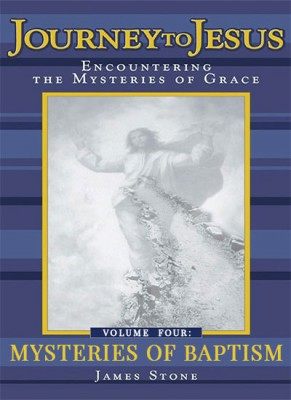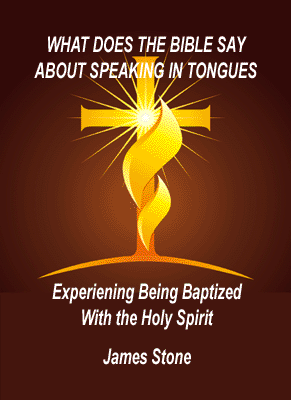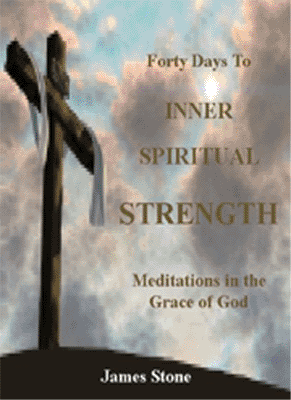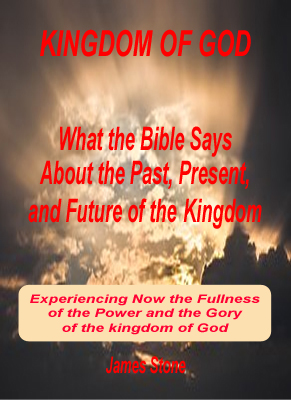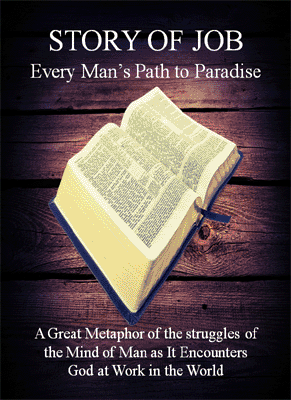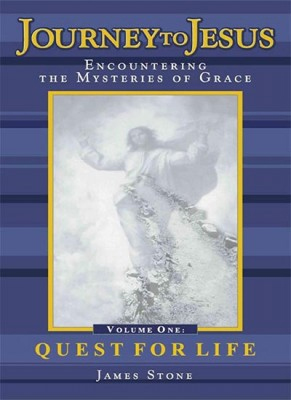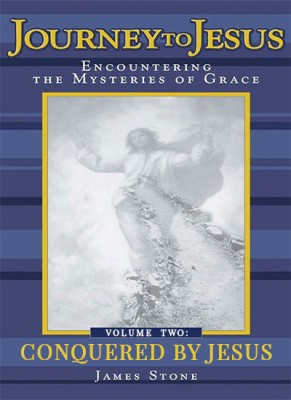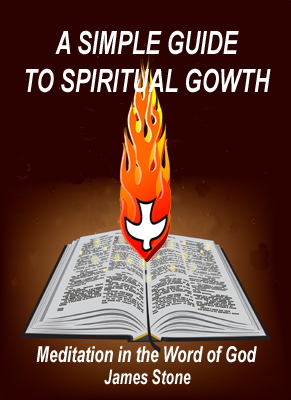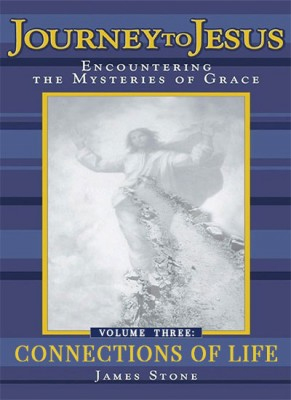Mysteries of Baptism – Journey to Jesus Vol 4
$14.95 – $19.95
Mysteries of baptism proclaim profound miracles. What enabled a carpenter by trade and twelve men (fishermen, a tax collector, and largely common laborers) in a short thirty year period to so impact their world that life has never been the same?
What caused the twelve to be so radically changed from being beaten down, fearful and afraid to become men who uncompromisingly faced their impending death?
What caused these “unlearned and ignorant men” to be able to spread from Jerusalem to their entire known world in one generation?
The mysteries of baptism radically changed the early followers of Jesus by what can be called resurrection events.
Without the use of television, radio, newsletter, city-wide crusades, or mass revivals, they carried the gospel into largely their entire known world. It was not so much the teachings taught by Jesus, as such, and consequently the attempt to follow those teachings that changed their lives. Christianity was born as a result of what God did through the death and resurrection of Jesus.
The movement that changed the world had its beginning in the claim of the early followers of Jesus to have had an experience of Jesus after his death. They were saved, they were transformed, and they were empowered by the spiritual experience of Jesus himself. They were quickened by a personal, transcendent, transforming energy that came from Jesus returning to them after his death in the power of what they knew as the Holy Spirit.
The early followers of Jesus were radically changed by what can be called resurrection events. These events enabled them to experience the coming of Christ into their physical world. It was not just a onetime event but an event that occurred over and over again as they went through each seedtime and harvest of their lives. It was what they knew as the way of life (mysteries of baptism). It was experiencing the life that does not die (the eternal Spirit of God) in the dying world of their existence.
Examples of the mysteries of baptism
For example, the morning always follows the night. Spring time comes out of the winter. The bloom of the flower occurs because of the planting of a seed. The ultimately expression of love grows out of the death of individual rights. God has created the entire world in the living hope of the resurrection of the body. Exaltation always follows humiliation in these resurrection events, these mysteries of baptism.
These resurrection events, or Baptisms, occur when anything in the created world is taken down to be raised up again in newness of life. Death is not only an established fact of everything that is created. But, that which dies will stand up again through the power of the essence of life that dwells within. This is the eternal glory to which the created world has been called: “While the earth remaineth, seedtime and harvest, and cold and heat, and summer and winter, and day and night shall not cease” (Gen. 8:22).
His eternal glory is that which flows through the seedtime and harvest, through the cold and heat, through the summer and winter, through the day and night, and through the countless baptisms of our lives.
God keep refreshing his presence in the created world in the mysteries of baptism.
The glory of experiencing life is not the actual seedtime or the actual harvest because both the planting of the seed and the harvest of the fruit will perish. As Peter stated, “For all flesh is as grass, and all the glory of man as the flower of grass. The grass withereth, and the flower thereof falleth away” (1 Pet. 1:24).
The manifestation of the bloom of the rose, the fruit of the tomato, and the love of a human relationship is definitely glorious. Each is produced by God, but the glorious moment for each of them will eventually fall away to be resurrected again and again. For His eternal glory is not the rose or the rose bush, nor the tomato or the tomato plant, nor the love relationship or the human beings.
It is that which produces them, the Spirit of life. It is the Spirit that raised Jesus from the dead. It is the Spirit that enables everyone to experience the mysteries of baptism. It is how God keeps refreshing his presence in the created world. It is these baptisms, successfully navigated by/in the Holy Spirit, that allow the believer to experience continually the life of Christ in his life.
You can experience Jesus in your mortal flesh by these mysteries of baptism.
What radically changed the early followers of Jesus was they encountered what can be called a baptism occurring in life. As Jesus said, “John truly baptized with water; but ye shall be baptized with the Holy Ghost” (Acts 11:16).
You will be taken down by the circumstances of life, but by the power of the Holy Spirit you will be raised up to manifest the glory of Jesus in your life. The opportunity for your life to be glorified occurs every time something destroys an aspect of your physical existence: a sharp word is said to you or about you, put down by someone at work or at home, conflict of interest issue arises, or any minor or major inconvenience in life occurs.
The mysteries of these baptisms is how you encounter life as a created being experiencing God. You, too, can experience the life of Jesus in your body. Through these baptisms which occur in your life, you, too, can experience the life of Jesus in your mortal flesh. The Mysteries of Baptism is a mystery, but it is a mystery revealed. (166 Pages)

